Communities are the atomic elements of molecular democracy: Part 4
Bonding and Bridging atoms
Currently, populist theories of social and economic change in the Global North, suggest that crises’ in the domains of democracy, health, economics, and our ecological systems are matters exclusively for legislative and institutional reform. As argued previously in this series, the prevailing assumption is that these are the big-ticket political items of the day which can only be resolved, at scale, by technocrats. This assumption draws our focus away from small, local, relational efforts that rely on tacit knowledge and local assets, towards international Trade Agreements, biotechnology and global networks. In so doing it relocates the authority for shaping democracy into the hands of institutional elites and away from regular people.
That said, the last three blogs have made the point that at the edge of every culture, alternative scripts to the dominant narrative are written. In an era of massification these fringe narratives while seemingly marginal and inconsequential are hugely significant[1]. The work of the ABCD Institute and others like us, suggests that much has been going on behind the obscuring veils of globalisation, technocracy and consumerism, which illustrates the power, innovation and sheer cunning of regular uncredentialed people. We just can’t see it very clearly right now. I will return to this theme later in the blog, but for now let’s turn a piercing eye towards the first layer of the veil: technocracy.
Technocracy
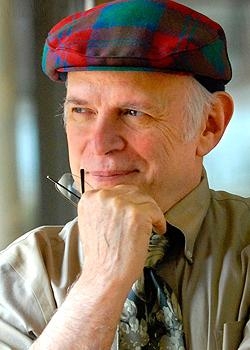
Harry Boyte, ©University of Florida
Harry Boyte in “The Citizen Solution” (2009) notes that the rising dominance of experts (technocracy) is hollowing out civic agency throughout American society. This observation, in my view, holds equally true across all industrialised countries.
Boyte argues that professionals have all but lost their connections to neighbourhoods, and are now far more likely to identify with fellow professionals in their respective field than with their neighbours and the people they serve.
It was not always this way. Closely related to technocracy is managerialism; both have had a toxic effect on democracy. Managerialism is now ubiquitous across all industrialised countries. Since the 1920s[2] managerialism has consistently taken the view that effective management is a science that should follow a standard set of rubrics, applicable across all organisations. Accordingly, a new class of professionals has emerged whose primary, if not only, expertise is ‘management’. This standardisation of how institutions are managed, through the science of managerialism, has meant that the structural exoskeletons of government institutions and large not for profits have become almost indistinguishable from those of for profit Corporations. Thereby transforming some of these institutions -that are intended to be stewards of ‘Public Goods’ -into the human services side of the marketplace.
Consumerism
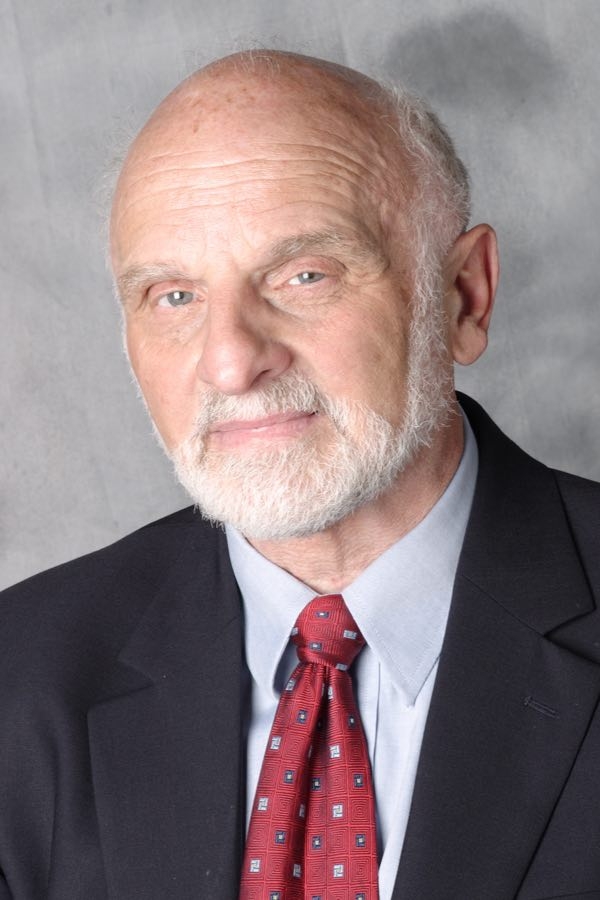
Walter Brueggemann
Walter Brueggemann, a biblical scholar and collaborator with John McKnight and Peter Block, suggests consumerism operates to the principle: ‘there is not enough, let’s get everything’, a belief in scarcity introduced by Pharaoh.
Similar to technocracy, consumerism offers a deal that separates the individual from the group or community for a private transaction. In doing so it negates the problem solving role and inventiveness of neighbours and inflates technocracy, clientalism and dependency.
It is an extractive force, since it says: “to meet the requirements to own what I’m selling you must excise something from yourself and your community; then transfer it to a distant corporation or institution”. And it relies primarily on indebtedness; hence the myth of scarcity is perpetuated with the intent of drawing us into debt with people we are not related to.
Consumerism and professionalisation[3] transform citizens into clients. When thought of it this way, it becomes clear that as a phenomenon it is not exclusive to capitalist societies. The erosion of citizenship in favour of supine dependence is prevalent throughout most, if not all, economic and political systems including Communism and Socialism. If you doubt this, count the number of ‘clients’ in Soviet Countries incarcerated in some of the largest institutions the world has ever seen, and you come to see that consumerism is not just about shopping, but extends to include all activities that transform citizens into clients.
Consumerism is of course a many-headed Hydra and individualism is the most two-faced of them all. The allure of the ‘modern world’ towards an individualistic cosmopolitan way of life, in favour of what some pejoratively characterise as a small town parochial one, is almost irresistible. And the consequences of not actively resisting this narcotic like entrapment are devastating to both people and the planet.
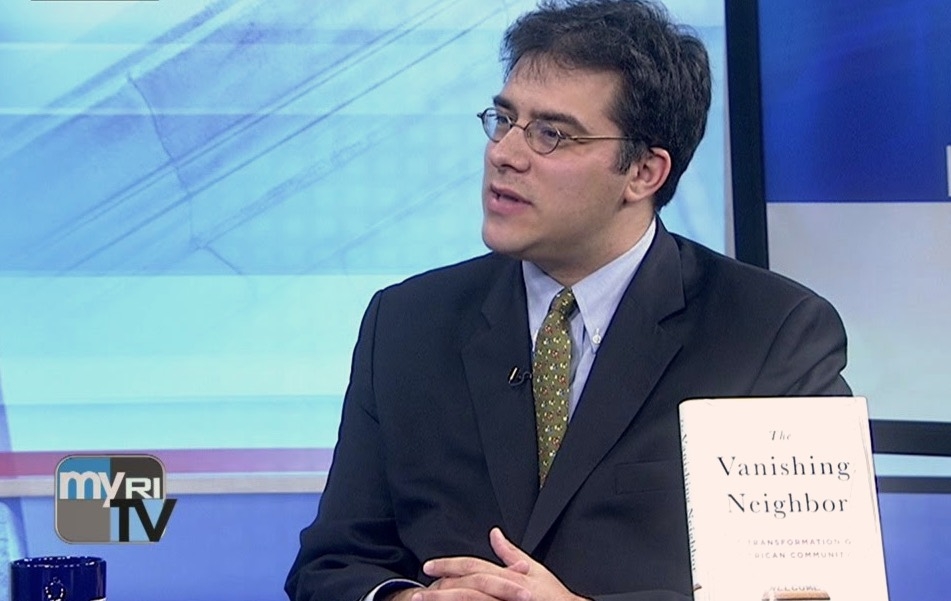
Marc Dunkelman
In The Vanishing Neighbor (2014) Marc Dunkelman writes about the changes in the social architecture of American neighbourhoods. He notes that adults today relate differently than did their grandparents, tending towards a few intimate relationships (the inner rings) and a wide expanse of more distant surface relationships (the outer ring). The casualties are the relationships in between (the middle-ring).
These ‘in between’ relationships are characterised by conviviality, friendship without intimacy, or what the Ancient Greeks called philia, what today we might refer to as civic connection or association. Dunkelman attributes the erosion of the middle-ring to a range of factors including technology, greater mobility, and a growing disconnect with institutions that once mediated the space between civic life and bureaucratic structures.
“We’ve been empowered in nearly every aspect of our lives to move past many of the burdens that once prevented us from pursuing our personal interests and concerns,” he says. The seemingly endless pursuit of our “true self” has sought to fill the hollowness of the middle-ring and in so doing has further eroded our associational lives. The practices of growing associational life and ecological stewardship are not transactional in the market sense, but relational in the local and interpersonal sense.
Of course consumerism in a globalised world takes on many more complex personas, than would be the case where economic sovereignty is secure.
Economic Globalisation

Thomas L. Friedman ©thomaslfriedman.com
According to Thomas Friedman (2005), globalisation has evolved over three phases across recent human history: phase one (1492-1800) was the globalisation of countries; phase two (1800-2000) was the globalisation of companies; and phase three denotes our current version of reality (2000 till now), the globalisation of people.
The promise of globalisation is that human ingenuity at scale, through technology, will make the world a better place for everyone. Advocates of economic globalisation consider proportionality and attention to local culture to be distractions and delaying tactics to the advancement of a single global market. And so as an ideology it exhorts us to remember that playing small and thinking local will not get us to a single global economy.
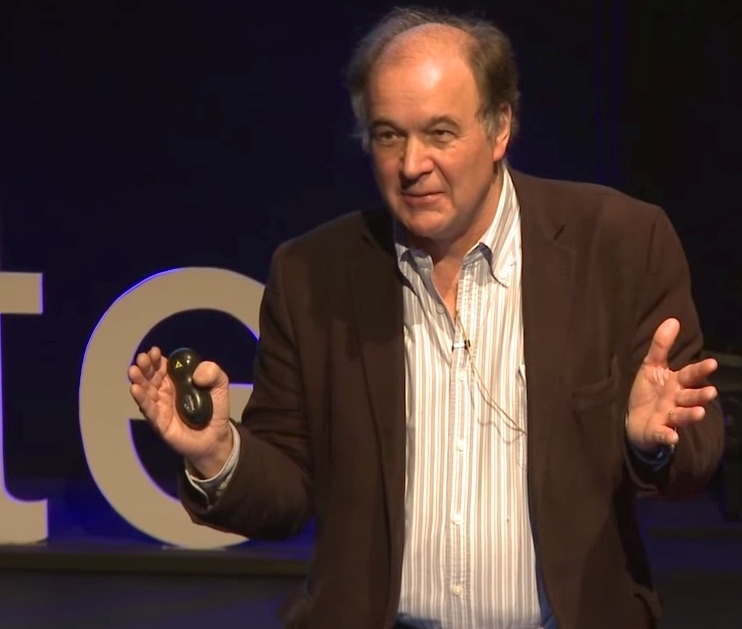
Stewart Wallis ©TEDx
Stewart Wallis a well respected economist, in his paper A Great Transition (2011) reviews the last 30 or more years since the 1980s when Thatcherite and Reaganite policies super charged Globalisation. His commentary is an absolute indictment against economic globalisation, in which he notes that our ecological, geo-political and economic world is hanging on by a thread. Contending that expansionism has triggered a crisis of planetary proportions; he points the finger of blame directly at economics. “Our economy is unsustainable, unfair, unstable and is making us unhappy” he says.
On a planet with millions of species[4], humans are not the only species that are suffering. Humans are consuming the planet and then dumping the detritus of that consumption at a rate nothing short of ecocide. In the last thirty years we have gone from consuming one planet worth of resources, to our current rate of 1.3%. To further compound the matter, this burden and the pyrrhic gains of globalisation are not shared equally across the planet, the Global South is picking up the ecological tab for the excesses of the Global North.
Stewart Wallis and others like him rightly point out that if everybody made the same life style choices that American’s make we would need five planets to sustain the demand. The UK is not far behind; by their standards we would need three. This reality demands a reframing of what we define social justice and equality to mean. It also calls for a review of what we mean by community development.
As John McKnight notes, sustainable progress demands “that our work should be post-modern, seeking invention and production that is measured by two standards:
- Low inputs and high outputs.
- Respect and enhance Food, Energy, Soil, Water, Air and Waste (FESWAW)“
I would add to the FESWAW list at a minimum, other species.

Naomi Klein ©naomiklein.org
The consequences of so seriously overrunning our planetary boundaries are already evident, 15 out of 25 major ecosystems are in decline, or serious decline. It is clear from more recent commentaries from the likes of Naomi Klein [5], and the hugely compelling research emerging from the Stockholm Resilience Centre that confining our concerns to discussions on climate change alone is naïve. The environmental consequences are of a planetary scale and effect near every aspect of our lives and the ecosystems of which we are part and through which we live.
Yet the systematic deregulation of corporate activity, unrestricted free trade and the privatisation of enterprise have all but neutered the powers of sovereign states to protect their workers, the health of their populations, their ecology and their indigenous cultures.
Globalisation as we know it today was feted as an attempt following World War II to prevent another world war by creating a new centralised global economic system to accelerate worldwide economic development. This, in turn, we were assured would trigger technological and consumer revolutions at scale, ensuring enough for all. In actuality the reverse has happen. The great divergence between the wealthiest and poorest countries and individuals within these countries has accelerated in the last 30 years to a point unprecedented in human history. Wealth distribution is now profoundly out of kilter with any generally acceptable measure of fairness. 99% of the worlds population to one degree or another have become ‘debt slaves’ or to soften the term indebted to the wealthiest 1%.
So then, where to from here?
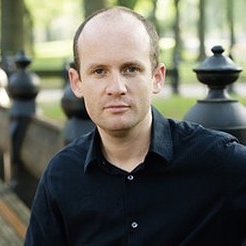
Oliver Burkeman ©amazon
Now is not the time for childish positivity, Pollyanna thinking will just not cut it. As argued brilliantly by Oliver Burkeman in ‘The Antidote: Happiness for people who can’t stand positive thinking’, we need to embrace uncertainty, accepting the world as it is, not as it should be, I would add: so that we can co-create the world as it should be, not as it is. The call to focus on what’s strong not wrong, is facile and misguided unless we can use what is strong to address what is wrong, and to make what’s strong even stronger. Our futures are political; just not party political.
The Chemistry of Democracy
Here’s my sense of what we can practically do to get to square one and beyond in advancing the cause of citizen centred democracy. So far I’ve argued that our mistake over the last hundred years or so (which has hyper intensified over the last 30 years) has been to try to effect change at the molecular level, either by working solely on a structural plane or through personal growth (such a the Human Potential Movement). If, however, communities are the atomic elements of molecular democracy, then we need to start working more at the atomic level. I say atomic level as distinct from working elementally with atoms of which there are about 100.
Of course here atoms are a metaphor for the various elements of community. The problem in only working with particular atoms, or the parts of those atoms -protons (citizens), neutrons (associations) and electrons (associations of associations)- that interest us is that in doing so we fail to effect any real growth in citizen centred democracy, since this domain is neither individualistic nor institutional, but civic and therefore collective. Hence deep democratic change happens when we attend not to the atoms alone, but to how the atoms get connected up to form a useful molecular relationship, or productive enterprise. This process from a community building perspective is described in an earlier series of blogs here.

©Lightspring at Shutterstock.com
In everyday life H-O-H or H2O looks, tastes and feels like water, but when we zoom in we see its molecular structure, which is to say we see how two hydrogen atoms and one oxygen atom have connected (covalent bonds) to form a water molecule. Our current democratic malaise may be likened to a society where people have become obsessed with the molecular structures (its form), as opposed to its functions. Molecules in nature take the form they do so as to be productive, not so that they can assume a particular pre-ordained structure. Nature is adaptive, non-ideological and immensely practical.
Somewhat like pieces of Lego- in Government centric democracies- the atomic elements of our democracies: our communities, get stuck together in very prescribed and imperial ways. Not so in a connected citizen-centred democracy. Where connections are mostly non mechanical, non-linear and emergent. Of course even in this context eventually over time structures form to enable certain functions to take place, but most importantly they form to enable us to perform our functions as citizens, for the people, by the people, of the people.

Isaac’s Lego creation
You may remember when Lego was sold without instructions. You got your box of blocks and you invented, sometimes you did so with friends, sometimes alone. But you were the creator(s), beyond the limits of what you could do with the various building blocks nothing was pre-set. Then came the Lego templates, the 44 page instruction leaflets that told you what to make and how to make it, followed by the Lego movies and characters, which told you how to think and feel about those characters. These days you simply cannot buy a bucket of blocks.
In our home we have a five-year old boy, called Isaac, he is the most inventive person I know, and consequently he is wisely disinterested in those glossy brochures and instruction manuals, instead he wants to connect and create the things he cares about. And this is I think precisely the way we will navigate ourselves out of this current set of crises’. As the Mondragon Cooperative counsels, we must ‘make the road by walking’ it.
Sadly our democracies have become prescribed Lego boxes where we can have any kind of democracy we like as long as it is one of those on the shelf-the one with instructions on how to do it right or left. If we are to progress beyond this stifling lack of real choice, we need to become like Isaac and invent our own way. Institutions need to lead by stepping back from civic space to enable that to happen or at least do no harm to citizen led invention. But how?
Well in my mind that’s what community building is all about, which is to say discovering, connecting and mobilising the building blocks that exist in every community, street by street, neighbourhood by neighbourhood. Not so that we can recreate a preordained version of democracy but so that we can enact democracy.
In each of our neighbourhoods, towns and villages there is a great reservoir of waking and sleeping assets, most of which are invisible, like the oxygen atoms that when combined with hydrogen in the right proportion make water that are revealed under the right lens, we need a new lens to discover what’s actually there, and to jettison the old lens that has served to obscure our assets. Part of this discovery process means zooming out of certain other things. Since it is hard to see our neighbour’s gifts when we have one eye on a shop front window and another on a screen. When Isaac builds things he has a ritual of keeping them for a while and then re-using those parts to build something else. It’s a wonderful model of fluid emergent invention. A model I admire and try to learn from. I believe that if we are to create a citizen centred democracy we need to see our institutions like cars, when they stop functioning, we should salvage the working parts, and use them alongside other assets to replace the original form with a more functioning model. Many of our institutions function like vintage cars, I get the sentimentality but doubt that they are any longer fit for purpose.
Citizen-centred models of democracy will not be so predictable, secure or governable as a car or molecule or Lego building. They will be nonlinear, networked based, flat and disruptive, and that means they will be resisted by the establishment.
Notwithstanding, some of the ways to a more citizen-centred democracy include:
- Supporting community building at neighbourhood level: Everybody cares about something in civic life enough to act on it; we simply do not yet know what that is for most people (see Question the Questionable Questions for a description of what this would look like on Monday morning)
- Organise our institutional structures to serve, not stifle citizen-led invention: let the genie out of the bottle! Our institutions could be treasure chests for community led change -indeed some currently are.
- Challenge the institutional assumption: decrease institutionalisation and increase interconnectivity in community life. Ensure people have sufficient income, control and community to make real choices towards a good life.
- Become internally focused and proliferate outwards: there are external forces that will do us over as communities, but to take them on as communities we must first connect powerfully, to organise our internal resources. In doing so we will discover that our internal resources can keep parasites at bay, but they can also help us to flourish locally as stewards of each others wellbeing and the wellbeing of our wider ecologies, to grow abundant communities from inside out.
- Recognise that the Third sector/Not for Profit is not a surrogate for community. In the same way that we describe a group of birds as a flock, we describe a group of citizens as a community. We would not call a group of bird enthusiasts a flock, nor should we call a group of charities or not for profit institutions community representatives. For more on this checkout: The Four-legged Stool, by John McKnight.
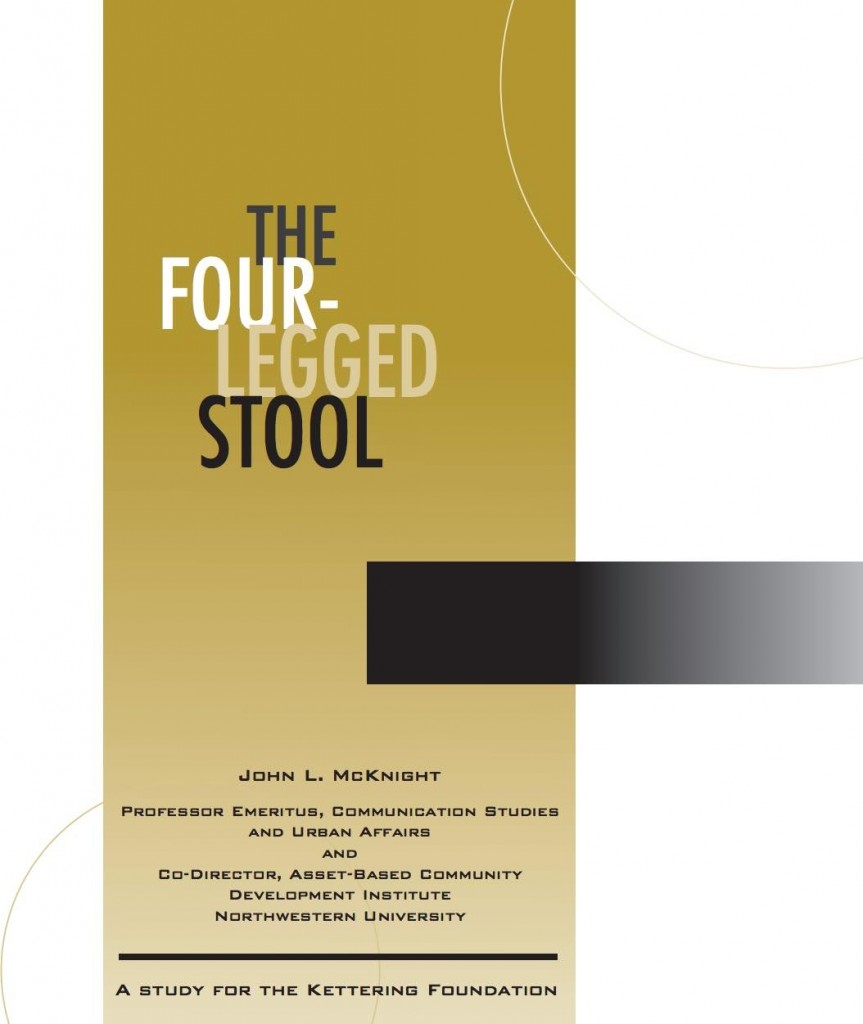
©abcdinstitute.org
I first heard the expression: Communities are the atomic elements of molecular democracy when I was interviewing John McKnight for my recent short book: Looking Back to Look Forward. It resonated strongly, but what also struck home forcibly was John’s follow up point around the need for the ‘recovery’ of a culture of community. The transition from a Government-centric democracy to a citizen-centred one is analogous to the kind of restorative transition that a forest must make after a forest fire, or land after decades of mono-cropping.
In the book John speaks about the influence that Robert Rodale had on his thinking. He notes:
“One of the most significant things he told me about was that early farmers in the United States would come and chop down all the trees and then mono-crop the land with wheat year after year after year.
If you did that even on relatively good land you’d find that after thirty or forty years the land would produce hardly any wheat because you’d taken all the nutrients out. In a sense, you’d created a desert.
What really caught my imagination was when he said nature has a strategy for recovering that land in its very design. I presume that biologists know about this.
At first, a group of fast-growing plants with big leaves appear. Then a second layer of plants grows: they need shade and some protection until they grow bigger than the first plants. And there’s a natural succession in which recovery of the land takes place, until finally great trees appear: they are the climax of the recovery process. So he called them Climax Forests – they’re the ultimate expression of the recovery.
Bob led me to think a lot about the succession process by which a neighbourhood could be recovered.
What is the first growth?
What would be the second?
And how could the second growth promote the third?
At this time in my life it’s probably the recovery process that I am most interested in because most neighbourhoods in the United States and in Canada are not places of connected people. To call them a community would be wrong: a community is a group of related people, but for the most part these people are not really related at all.
But they’re there, and you could say that they all came from a history of families and communities, ethnic groups, racial groups, tribal groups, that were once connected – but that the world marketplace has done them in, just as Monsanto has done in the land. And so now their lives are a desert too. What is it that will enable succession in human communities?
Whatever brief time I have left here in this world, will be about experimenting and examining that process.”
Communities too have their ‘ways’ –built into our very design- of recovering democracy. But many have forgotten those ways. So, as Milan Kundera reminds us:
“The struggle of man against power is the struggle of memory against forgetting.”
(The Book of Laughter and Forgetting)
On that journey there will be those who sew seeds, those who plants flowers and those who support the climate where indigenous growth flourishes from inside out.
A climatologist! A climatologist! My kingdom for a climatologist!
Cormac Russell
[1] The Politics of Small Things
[2] Elton Mayo, a Professor at Harvard Business School popularised managerialism in the 1920s and 1930s. Believing that corporate managers within well functioning organisation could restore a sense of societal coherence lost during the First World War as a consequence of mass immigration and increasing industrialisation.
[3] Chris Larch, The Limits to Satisfaction
[4] http://www.theguardian.com/environment/2011/aug/23/species-earth-estimate-scientists
[5] http://www.naomiklein.org/meet-naomi
